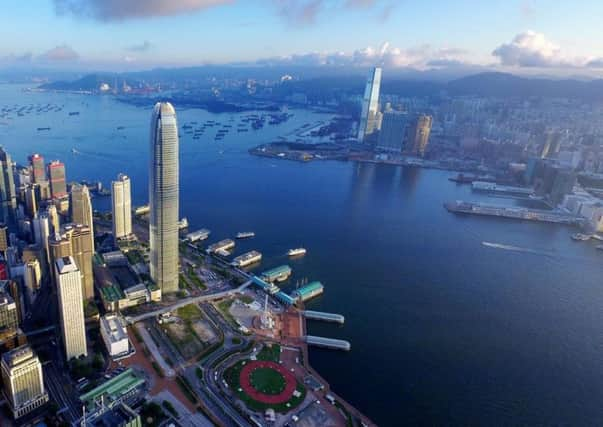Chris Gauton: Why Hong Kong offers new vision for Yorkshire's transport system


London-based political parties have failed Yorkshire for the past 50 years, starting with the Beeching review that cut railway lines, then bus deregulation in the 1980s, followed by train privatisation in the 1990s, not to mention under-investment in roads and public transport.
There is a lack of ambition and a vision by the main political parties that allegedly represent the people of Yorkshire.
Advertisement
Hide AdAdvertisement
Hide AdThe problem is that politicians do not sit in traffic trying to get to work avoiding potholes in roads and motorways. Neither do they do have to stand up on packed trains trying to get to work every day. These are the realities of travelling around Yorkshire in 2018.
It is said that Yorkshire should celebrate the new trains that will come into operation at the end of 2018 and that could attain speeds of 100mph, but it misses the point. You can have trains that can attain speeds up to 200mph, but if the track will allow only 80mph, that is how fast the train can go. London and the South East have had these types of trains for the past 10 years and their infrastructure has been upgraded so again the people of Yorkshire are at the back of the queue.
The length of the London Underground’s Central Line is longer than the distance between Leeds and Manchester and yet is served with far faster services at a fraction of the cost. It tells you all you need to know about how Whitehall and successive governments have treated the North when it comes to infrastructure. According to a recent BBC study, Britain’s bus coverage has hit a 28-year low. In Yorkshire, the scale of the bus network has fallen to levels last seen in 1991. Once you take the politicians out of the equation you then have the various transport bodies such as the Department for Transport, Transport for the North, Network Rail, Highways England, ORR, local authorities, bus companies, train companies all competing for their share, be it money or power. This system is disjointed, costly, inefficient and just doesn’t work.
What Yorkshire needs is a long-term transport strategy that plans until at least 2050. As part of that strategy, we need a fully integrated transport system for the whole of Yorkshire where one organisation is responsible for the planning, construction, maintenance and operation of highways, bridges, railways, buses, trains, trams, bicycle routes etc.
Advertisement
Hide AdAdvertisement
Hide AdThere is a school of thought that says trams might be the answer but tram lines have, in the main, been put in competition for space with motor vehicles as they use the same infrastructure. They have to stop at junctions and traffic lights, so are they as efficient as claimed?
Many prosperous cities and regions – such as Vancouver, Hong Kong and Singapore – are not reliant on, or short-sighted enough, to think trams are the answer to transport problems. They have Mass Rapid Transport systems that use trains that run on new infrastructure in both underground and elevated formats. These systems are highly efficient and cost-effective, both to run and for the paying public. That, in turn, attracts even more passengers. It also attracts investment around stations, regenerating often run-down areas.
These cities also embrace the use of new technologies, such as hybrid and trolley buses, to provide communities with safe and efficient transport. The tickets to travel in these places are affordable and the types of ticketing are simple and uncomplicated, unlike the system in the various parts of Yorkshire.
By adopting such a transport system, there are many benefits including lowering exhaust gases – helping public health, reducing greenhouse gases and reducing the stress of travelling to work on traffic-jammed roads.
More importantly, this type of system would provide means of transport whereby the Yorkshire travelling public could travel safely, efficiently and cost effectively.